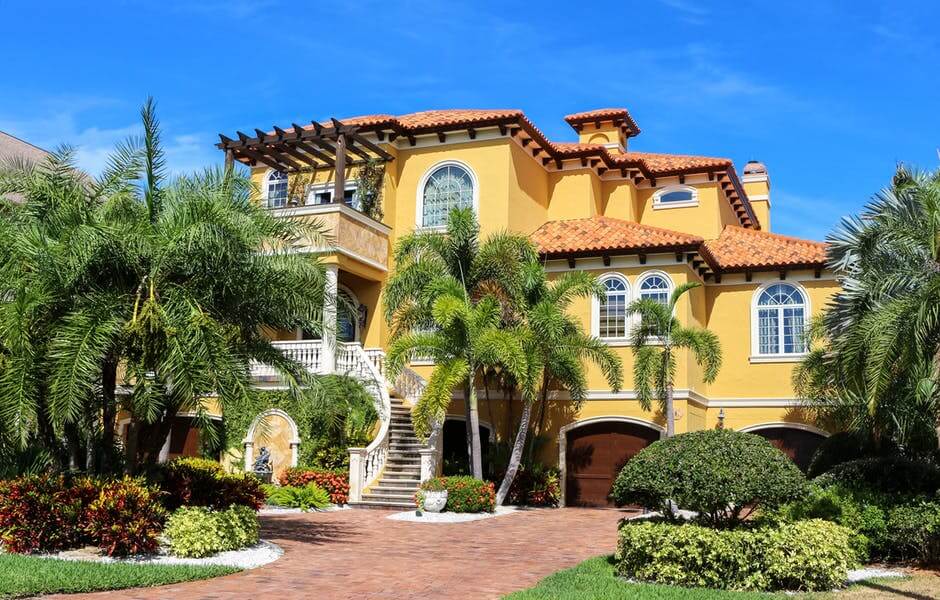Buying overseas can be a very worthwhile investment, as long as you inform yourself thoroughly on what it takes to buy and own a property on foreign land. Here’s what you need to consider before investing in a property abroad.
Arranging an Overseas Mortgage
If you are looking to get a mortgage on a home overseas, you can arrange this either with a UK bank or an international lender. Generally, UK banks will only enable you to get a mortgage out on a foreign property if they have branches or offices in the country which it is situated in.
For this reason, it is usually easier to get a UK mortgage on a property in Europe than it is if you were looking to buy further across the globe.
Alternatively, you may use a foreign mortgage broker to fund your overseas mortgage. When borrowing in a foreign currency or using a multi currency business account, you must remember that you will be subject to fluctuating exchange rates and charges.
Mortgage rates will differ from country to country; do not assume you will be operating within the remits of UK prices. As a further note, some countries require a larger deposit than typical UK requirements to be paid upfront when purchasing a property. You may be expected to pay a deposit as large as 40% of the property price.
Buying Overseas for a Holiday Home
Many Brits buy second homes abroad as a place to retreat and relax in the summer months. Holiday homes are generally considered a luxury, but they can also prove to be very lucrative. Many buyers will rent out their holiday homes when their properties are not in use, such that they can avoid losing money on expenses throughout the year.
With holiday hosting homes such as Airbnb being so popular today, it has never been a better time to invest in a holiday home.
When considering buying overseas for a holiday home, it is important to consider the following:
- how much use will the home get?
- is it in an area that might attract holiday rentals?
- how expensive will it be to maintain the home?
If you are likely to be able to travel to your holiday home multiple times a year, it will be far more worth your while than if you are merely using it as a one-time-a-year retreat. In any case, it is best to rent it to holidaymakers whenever possible, so you are not paying for empty space.
Buying Overseas for Long-Term Investment
You may be tempted to buy in a country or area where housing prices have taken a significant dip, but it can prove to be very risky long-term if you buy a property within a volatile market.
If you are thinking of buying overseas to go on to sell the property, you need to be careful to time your sale well – only sell the home when you have maximised the equity within it in order to make a decent profit.
You can increase the amount of equity in a home by renovating it, making it far more valuable on the housing market. Overseas properties in hot climates may be easier to sell if you add luxuries such as a pool, a hot tub, or balconies and terraces. Once the sale is made, you can no longer make any further profits from that property.
If you are investing in an overseas home as a rental property, you must consider what it takes to keep a property in good order for tenants. Maintenance fees will apply, and there are many responsibilities involved in being a landlord.
You must be aware of the average rental prices for properties of that kind in that area if you want to avoid either being ripped-off or not being able to attract tenants. You will likely want to consider advertising the property in local estate agents, which will involve costs to consider.
Any profits derived from your overseas property through renting it out will require the payment of income tax. Rental income is taxed differently in different countries – it is important that you become clued up about the mechanisms of taxation in the region you are buying in, and how those mechanisms relate to overseas buyers.
How to Finance Buying Overseas
Many overseas buyers will either use their savings to purchase a second home abroad or go down the route of remortgaging their current UK home to fund the investment of buying overseas.
If you do not want to remortgage your home, but need to release funds to pay for your overseas investment, you may consider getting a Second Charge Loan.
Second Charge Loans enable you to release equity on your existing mortgage without having to remortgage your current home. It is a type of second mortgage, which becomes second priority to your original mortgage when it comes to repayments.
Second Charge Loans can be quick and viable loans products to fund buying overseas.
